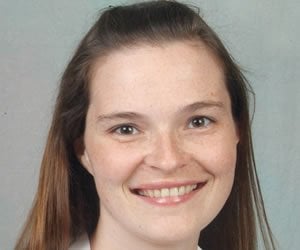
Student Loan Forgiveness for Medical Students
Many medical students cheerfully expect to be earning a generous income as they begin their ... Read more
Written by: Brian Wu
Published on: January 28, 2016

Many medical students cheerfully expect to be earning a generous income as they begin their ... Read more
Written by: Brian Wu
Published on: January 28, 2016

$176,000. It’s a number newly-minted physicians or those in the process of becoming a doctor ... Read more
Written by: Student Loan Hero
Published on: October 21, 2015

Memorial Day and Mother’s Day are May’s official holidays, but for millions, graduation day is ... Read more
Written by: Atul Grover
Published on: July 6, 2015

You’ve already done the hard part, you’ve made it into medical school! But how are ... Read more
Written by: AAMC Staff
Published on: July 1, 2015

Medical students deal with a lot of scary things: frequent do-or-die exams, looming USMLE or ... Read more
Written by: Brent Schnipke
Published on: January 23, 2015

Deborah Elaine Linder, DVM, is a board certified veterinary nutritionist and a research assistant professor ... Read more
Written by: Juliet Farmer
Published on: November 7, 2014

The AAMC offers tips to make a smooth transition to medical school.
Written by: AAMC Staff
Published on: July 2, 2014

Words of wisdom for new dentists from the American Student Dental Association's blog: Mouthing Off.
Written by: Marcus Neff
Published on: June 6, 2014

Andrew Read-Fuller shares his thoughts on the field of dentistry and offers some advice for students.
Written by: Juliet Farmer
Published on: May 12, 2014

How to make the most of your limited budget while in medical school.
Written by: Megan Riddle
Published on: May 9, 2014

Start your post-undergrad life on the right foot with these tips from the AAMC, whether you are starting school right away or taking a gap year.
Written by: AAMC Staff
Published on: March 4, 2014

The National Health Service Corps creates a win-win for doctors and underserved communities by financing medical education and bringing health care to those who need it most.
Written by: Christina Crisologo
Published on: February 25, 2014

Worried about paying off student loans? Find out how here!
Written by: Annie Davis
Published on: November 26, 2013

Plan for financial success despite the challenges of student debt.
Written by: James M. Dahle, MD, FACEP
Published on: November 15, 2013
Is working during school a good idea?
Written by: Joseph Love
Published on: August 14, 2013